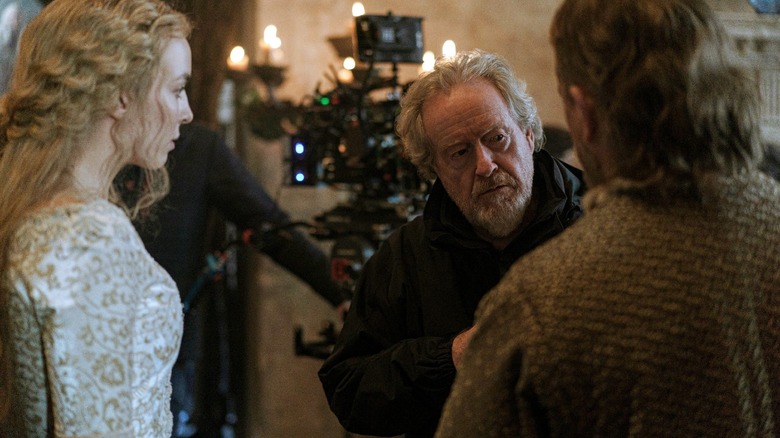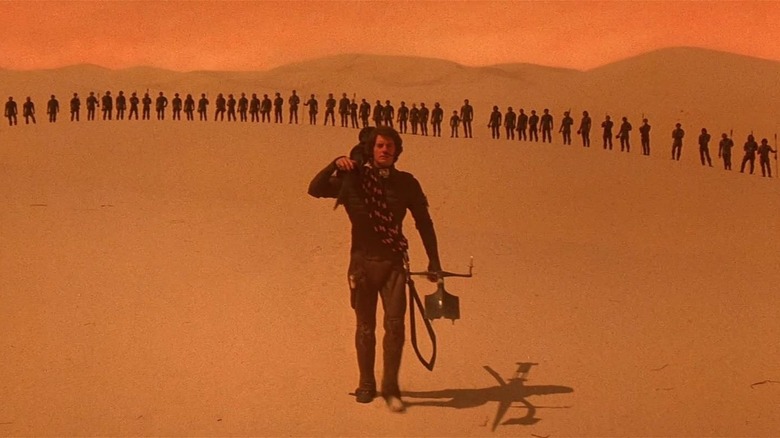Why Ridley Scott Backed Out Of Adapting Dune
Oh, to be Ridley Scott and have the ability to say absolutely anything that happens to be on his mind at any given moment. As if it wasn't enough of a gift that we received not just one, but two entertaining and well-received films from him this year covering very different subjects — "The Last Duel" and "House of Gucci" — we continue to enjoy a double dose of Scott's press duties throughout 2021. This has already led to gems such as his oddly endearing "get off my lawn" moment concerning the box office disappointment of "The Last Duel," or the legendary filmmaker's public back-and-forth with the real-life Gucci family, who were predictably not pleased with their unflattering depiction in "House of Gucci."
Though far less fraught of an issue than those, Scott has also found time to talk about why he stepped away from directing a "Dune" film decades ago — a job that, as you may know, ultimately went to David Lynch instead. In classic Ridley Scott fashion, his reasons for doing so are pretty amusing.
Walking Away
"Dune" has proven to be extraordinarily difficult to adapt over the decades. Prior to Denis Villeneuve's largely successful film that released earlier this year, director Alejandro Jodorowsky and "Planet of the Apes" producer Arthur P. Jacobs attempted to bring Frank Herbert's original novel to the big screen. But before David Lynch could finally get his hands on it (only to disown it completely, though it has since developed a cult following), Ridley Scott found himself in line to direct. What happened? Well, Scott told Total Film all about it.
In response to being asked whether he believes Villeneuve's "Dune" proved that the story needed the assistance of advanced technology to be fully realized on-screen (think of James Cameron waiting years to finally film "Avatar") or if it was always able to be filmed, Scott remarked that, "It's always been filmable," before launching into a tangent about why he ultimately walked away from the production. The reason had to do with, of all things, not wanting to film on location in Mexico.
"We did a very good take on 'Dune,' because early days, I'd work very, very closely with the writer. I was always glomming the look of the film onto what he or she was writing. And then [producer] Dino [De Laurentiis] had got me into it and we said, 'We did a script, and the script is pretty f***ing good.' Then Dino said, 'It's expensive, we're going to have to make it in Mexico.' I said, 'What!' He said, 'Mexico.' I said, 'Really?' So he sent me to Mexico City. And with the greatest respect to Mexico City, in those days [it was] pretty pongy. I didn't love it. I went to the studio in Mexico City where the floors were earth floors in the studio. I said, 'Nah, Dino, I don't want to make this a hardship.' And so I actually backed out and instead moved on to 'Legend.' Tim Curry and Tom Cruise."
If there's anything we know, it's that the famously controlling director marches to the beat of his own drum. Nobody was going to force him to shoot in a location he didn't love, nor would anyone wrest final cut privileges away from him, so walking away was probably the best move all around. Could Ridley Scott's "Dune" have proven superior to David Lynch's or even, dare I say it, Denis Villeneuve's? We'll never know, but it's fun to think about!

